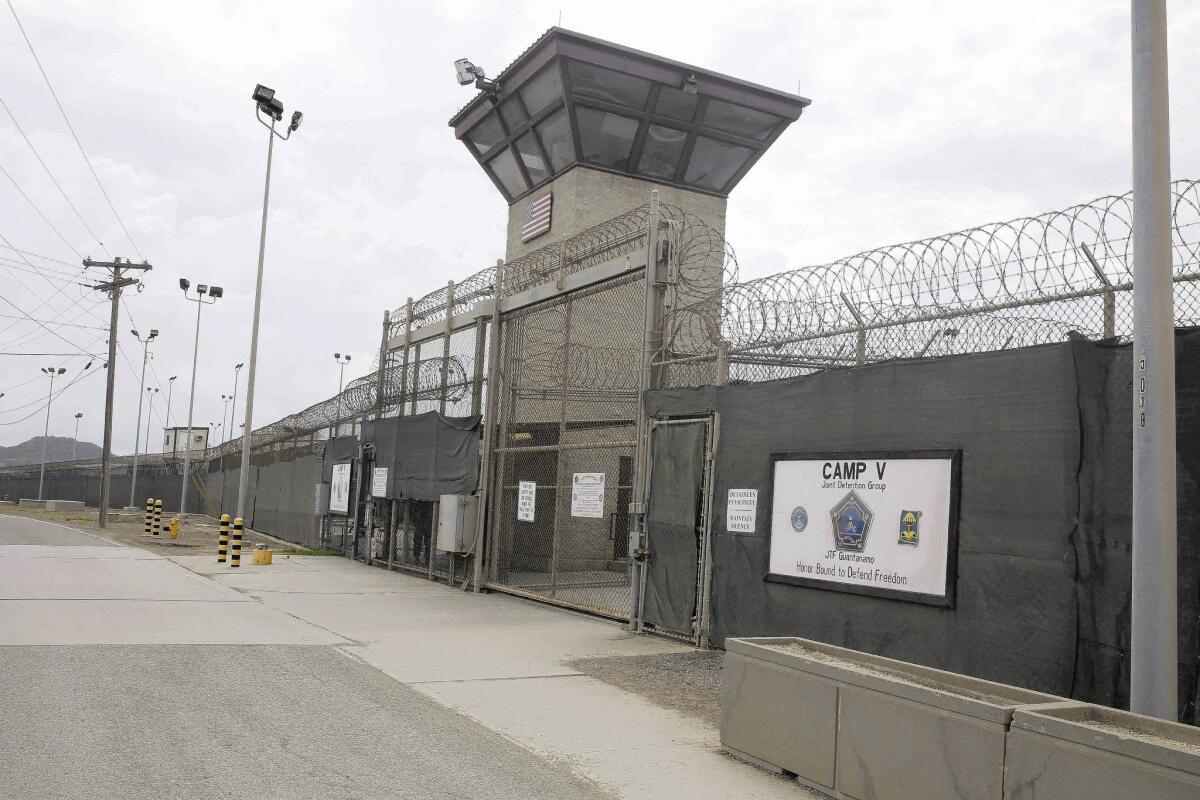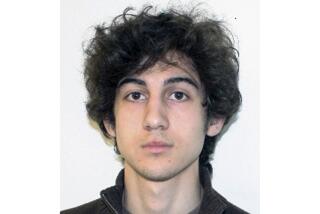Court tosses two convictions against former Bin Laden aide

A federal appeals court struck down two terrorism-related convictions Monday against Osama bin Laden’s former press secretary and propagandist, Ali Hamza Bahlul, but upheld a third for conspiracy.
The decision had the potential to be a landmark on handling prisoners at the Guantanamo Bay detention facility. But the ruling was so splintered — with five opinions adding up to 150 pages among seven judges — that the impact was muddled, legal scholars said.
The U.S. Court of Appeals for the District of Columbia Circuit did make it clear for the first time, in an opinion by Judge Karen L. Henderson, that two legal tools commonly used against Al Qaeda prisoners — charges of material support for terrorism and conspiracy to commit terrorism — could not be applied if the alleged violations took place before passage of a 2006 law establishing military commissions to prosecute defendants for such crimes.
The Constitution’s protections against being charged after the fact must be extended to Guantanamo prisoners even though they are not U.S. citizens, the court said. As a result, the law cannot be applied retroactively to punish actions that were not yet covered by the 2006 law, judges said.
The court was particularly bedeviled by a third charge — conspiracy to commit terrorism — on which Bahlul was previously convicted. It upheld the conspiracy charge primarily because it concluded that Bahlul had forfeited his right to appeal for refusing to mount a defense during the original proceeding. Bahlul was convicted of all three charges by a military commission and sentenced to life in prison.
Three of the seven judges argued that the court should have decided the conspiracy charge on broader constitutional grounds to settle the issue for other Guantanamo prisoners.
One of the seven judges was ready to overturn all the charges against Bahlul.
The mixed decision led to a confusing result that exasperated some judges who were pushing to settle the conspiracy issue once and for all, said Stephen I. Vladeck, a law professor at American University in Washington.
The lack of a clear consensus on the ideologically divided court may reflect the recent arrival of four judges appointed by President Obama. With judges appointed by Democrats now in the majority on the District of Columbia court, it is likely to have a more liberal cast in the rare instances when the full court decides a case “en banc,” or all together, instead of in three-judge panels.
The court’s majority sent Bahlul’s appeal back to a three-judge panel to decide other issues related to the conspiracy charge, which could yet mean a victory for the defense. In the meantime, Bahlul has spent 12 years in the U.S. prison in Cuba.
Bahlul, who was born in Yemen, joined Al Qaeda in the late 1990s and went to Afghanistan, where he swore loyalty to Bin Laden, U.S. officials say.
He produced a video with footage celebrating the attack on the U.S. destroyer Cole, which killed 17 Americans in 2000, and helped with publicity related to the Sept. 11 attacks, prosecutors say.
He was captured in Pakistan in December 2001 and sent to Guantanamo the next year.
More to Read
Start your day right
Sign up for Essential California for news, features and recommendations from the L.A. Times and beyond in your inbox six days a week.
You may occasionally receive promotional content from the Los Angeles Times.







